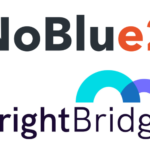Already have an online store? Do you consider expansion beyond eCommerce? Don’t let your existing systems hold back your growth.
Ok, you’ve got the best in class UI and UX website and online store, now what? How will you manage stock levels, process orders, market your clients or link touchpoints to round up customers’ whole shopping experience into an omnichannel one? Now, think global. How will you manage items, inventory, customers and order data from different locations, stores, site… utilising a single source will reduce time spent and give you more control.
Get true profitability of your customers, know their lifetime value and be able not only to sell but to customise marketing based on their profiles, interactions, visits… all viewable in a single system.
Although we usually recommend using SuiteCommerce for eCommerce, you may already have your own site developed by third party. Fortunately, we have different options for integration, so don’t let this set you apart from controlling your business, linking every step of a multi-channel, multi-location retail business — from eCommerce, marketplaces, POS, and order management to marketing.
Pairing third-party eCommerce with NetSuite’s back office is the best investment you can do. Benefits for your customers are accurate inventory levels displayed online, consistent product information, and fast and transparent order status and delivery features to maximise visitors’ value. For your business, NetSuite ecommerce provides a robust and flexible tool to manage everything else -from other points of sale to customer care-, providing customer and business insights -such as what type of client is more likely to accept a promo offer- whether you are a B2B, B2C or B2B2C company helping you to evolve and improve, and thus grow.
Now, as a modern, digital, customer-centric business, there are some points you should consider before integrating:
- Know the experience you want to create for your clients. Not only visiting, or the buying process, but the whole experience. Understanding the points at which you interact with your customers, and how you want your customers to experience those touch points, is very important to planning a successful integration.
- What information you need to operate the business
- What insights you need to keep control, stay informed and make data-based decisions.
NetSuite and most third-party eCommerce apps are sophisticated platforms offering a wide range of tools to shape the system to your business. Due to this flexibility conflicts between platforms may appear and sometimes pre-built connectors cannot solve them.
As we always mention, you should never look for a system to replicate your processes. Instead, you must step back and analyse how present processes can be optimised, then look for the system and partner to help you redefine and implement.
Integrating online stores into NetSuite
Of course, you need or should look for automation. Two other factors are probably budget and specific business processes. All three are key to the final solution.
Pre-built connectors. – is a quick, and affordable option for small companies. For regular businesses, with no complex processes or customisations may be the perfect option. No upfront costs, since almost all work with a monthly fee, and can cover most common automation. However, if your requirements go further, typical business rules do not apply or don’t want to, no matter how cheap this option can be, it will not be an option, leading to continuous pain instead of solving.
Custom Built Integrations. – need development and thus have an upfront cost. The advantage is it 100% suits your needs and supports your business processes seamlessly.
Cyclr embedded technology. – could be considered as Connectivity as a Service. Instead of adapting to the pre-built connector and be stuck with a standard set of data, or build from scratch a totally customised integration, this technology embeds into NetSuite so integration with an online store is done natively. A comprehensive API allows your service provider to design your own UI/UX or use our simple LAUNCH and ORBIT interface. There are multiple benefits in using this “intermediate” solution. It accelerates the development of integrations, reduces the burden of building plugins, or supporting custom code built against your API. Cyclr offers connectors to access data through APIs, but also dedicated connectors to access data via webhooks (including features such as automatic field discovery), MySQL, databases and web-based forms. Moreover, it has workflow controls between the connectors to allow rule setting between multiple applications, such as eCommerce – CRM – NetSuite – Bronto, for example.
What you should specifically consider when integrating
Most important of all is to make sure all business processes and touch points between systems have been mapped, so they can communicate successfully.
Basically, what needs to be connected is:
- Stock update
- Catalogue integration
- Category integration
- – different methods between the eCommerce platform and NetSuite may need adjustments
- – one-way integration from eCommerce to NetSuite
- Shipping confirmation. – one-way integration from NetSuite to eCommerce
- Payment/refunds. – needs integration with the payment gateway
But to ensure integration is complete, you cannot ignore other areas and specific business processes you may have or want:
- Flow of customers from online store to NetSuite
- Stock update flow from NetSuite to online store and vice versa when an order is placed
- Link order-client-item to be updated in both systems
- Ability to see history of orders made from any channel, both for the client and the company
- Invoicing, payments, return authorisations, update inventory when the item is returned available both in the site and NetSuite
- Payment details to be stored -such as credit card
- Does your eCommerce payment flow adjust to typical or has specific conditions, such as instalments, subscriptions, payment upon fulfilment or funds captured at the moment the order is placed?
- Transactions and data types your business accepts and how the eCommerce and your NetSuite system work with them
- Inventory location. If you manage a multi-location inventory you must make sure an integrated eCommerce site looks at the proper location to ensure availability and submitting the order to the designated warehouse for fulfilment.
- Configuring forms and integrating customer and order data between eCommerce and NetSuite. Make sure all required fields are set up to capture and pass the information between systems, so no record fails.
- Workflows are custom business rules and processes. Ensure both NetSuite and your eCommerce work well with the other system flows if you want them integrated or limited to the system.
- Will you integrate other business lines such as support, ticketing, marketing, etc.
- Consider taxes, customs and duties if you ship internationally
Integrating two or more systems is a complicated business. Different software is built by different companies and developers, with different goals and purposes in mind. Fortunately, NetSuite was built thinking of future integrations with other systems.
NoBlue is Certified NetSuite Developer and has experience in third-party eCommerce integration, so do not hesitate to get in touch if you have further questions, need expert advisory or want to get the most of your systems.









